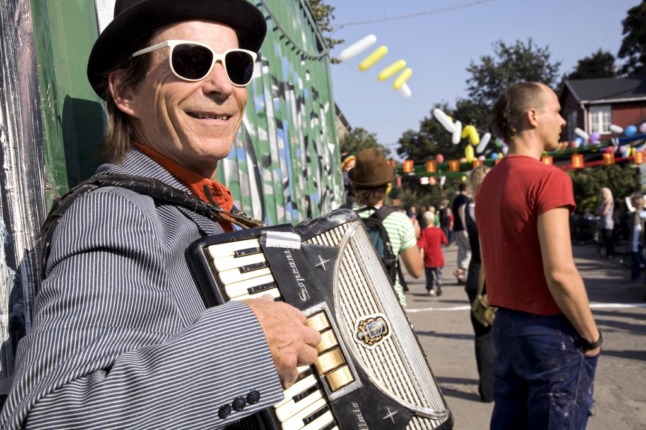Nestled in the heart of Copenhagen, Christiania is seen by some as a progressive social experiment, while others simply see it as a den of drugs.
On September 26th, 1971, a band of guitar-laden hippies transformed an abandoned army barracks in central Copenhagen into their home. They raised their “freedom flag” and named their new home “Christiania, Freetown” after the part of the city where it is located.
They wanted to establish an alternative society, guided by the principles of peace and love, where decisions were made collectively and laws were not enforced.
Soft drugs were freely available, and repurposing, salvaging and sharing was favoured over buying new.
It was a community “that belonged to everybody and to no one”, said Ole Lykke, who moved into the 34-hectare (84-acre) enclave in the 1970s.
These principles remain well-rooted today, but the area has changed in many ways: tourists weave through its cobblestone roads, and the once-reviled market economy is in full swing.
Perhaps most importantly, it is no longer a squat. Residents became legal landowners when they bought some of the land from the Danish state in 2012.
Now it is home to some 900 people, many artists and activists, along with restaurants, cafes and shops, popular among the half a million tourists that visit annually.
“The site is more ‘normal’,” says a smiling Lykke, a slender 75-year-old with ruffled silver hair, who passionately promotes Christiania, its independence and thriving cultural scene.
Legislation has been enforced since 2013 — though a tongue-in-cheek sign above the exit points out that those leaving the area will be entering the European Union.
‘Embrace change’
It is Christiania’s ability to adapt with the times that has allowed it to survive, says Helen Jarvis, a University of Newcastle professor of social geography engagement.
“Christiania is unique,” says Jarvis, who lived in Christiania in 2010.
“(It) endures because it continues to evolve and embrace change”.
Some of those changes would have been unthinkable at the start.
Residents secured a bank loan for several million euros to be able to buy the land, and now Christiania is run independently through a foundation.
They also now pay wages to the around 40 people employed by Christiania, including trash collectors and daycare workers.
“Money is now very important,” admits Lykke, who is an archivist and is currently exhibiting 100 posters chronicling Christiania’s history at a Copenhagen museum.
But it hasn’t forgotten its roots.
“Socially and culturally, Christiania hasn’t changed very much,” he says, noting that the community’s needs still come first.
‘Judged a little’
Christiania has remained a cultural hub — before the pandemic almost two dozen concerts were held every week and its theatres were packed.
But it is still beset by its reputations as a drugs hub.
Though parts of Christiania are tranquil, lush and green with few buildings, others are bustling, with a post office, mini-market, healthcare centre, and Pusher Street, the notorious drug market.
Lykke says it’s a side of Christiania most could do without.
“Most of us would like to get rid of it. But as long as (marijuana use) is prohibited, as long as Denmark doesn’t want to decriminalise or legalise, we will have this problem,” says Lykke.
While still officially illegal, soft drugs like marijuana and hash are tolerated — though not in excess.
Since early 2020, Copenhagen police have seized more than one tonne of cannabis and more than a million euros.
“Sometimes I don’t tell people that I live here because you get judged a little bit. Like, ‘Oh, you must be into marijuana and you must be a smoker’,” says Anemone, a 34-year-old photographer.
For others, Christiania’s relaxed nature is part of the appeal.
“It’s different from what I know, I really want to see it,” laughs Mirka, a Czech teacher who’s come to have a look around.



 Please whitelist us to continue reading.
Please whitelist us to continue reading.
Member comments